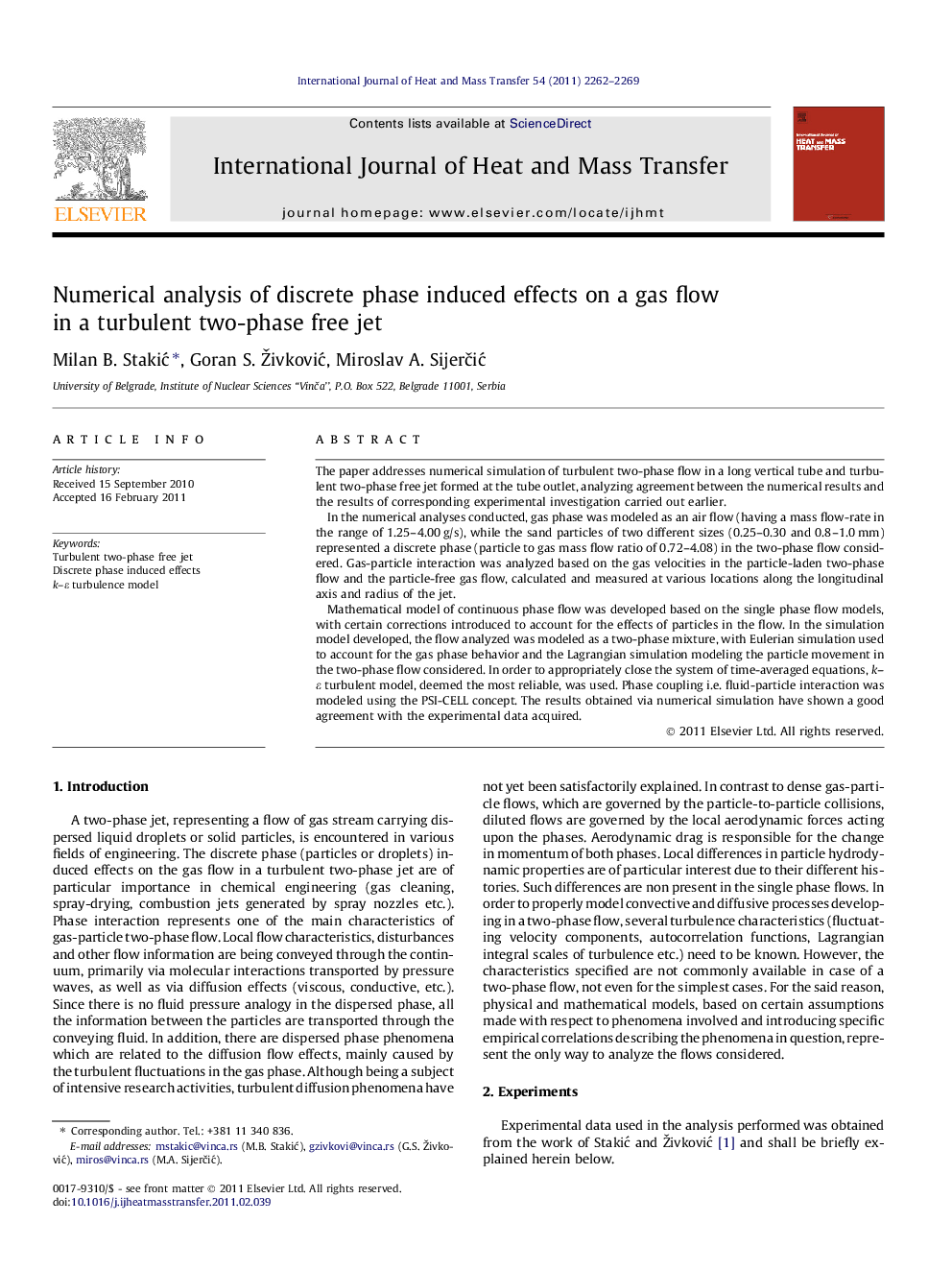| Article ID | Journal | Published Year | Pages | File Type |
|---|---|---|---|---|
| 659514 | International Journal of Heat and Mass Transfer | 2011 | 8 Pages |
Abstract
Mathematical model of continuous phase flow was developed based on the single phase flow models, with certain corrections introduced to account for the effects of particles in the flow. In the simulation model developed, the flow analyzed was modeled as a two-phase mixture, with Eulerian simulation used to account for the gas phase behavior and the Lagrangian simulation modeling the particle movement in the two-phase flow considered. In order to appropriately close the system of time-averaged equations, k-ε turbulent model, deemed the most reliable, was used. Phase coupling i.e. fluid-particle interaction was modeled using the PSI-CELL concept. The results obtained via numerical simulation have shown a good agreement with the experimental data acquired.
Keywords
Related Topics
Physical Sciences and Engineering
Chemical Engineering
Fluid Flow and Transfer Processes
Authors
Milan B. StakiÄ, Goran S. ŽivkoviÄ, Miroslav A. SijerÄiÄ,
